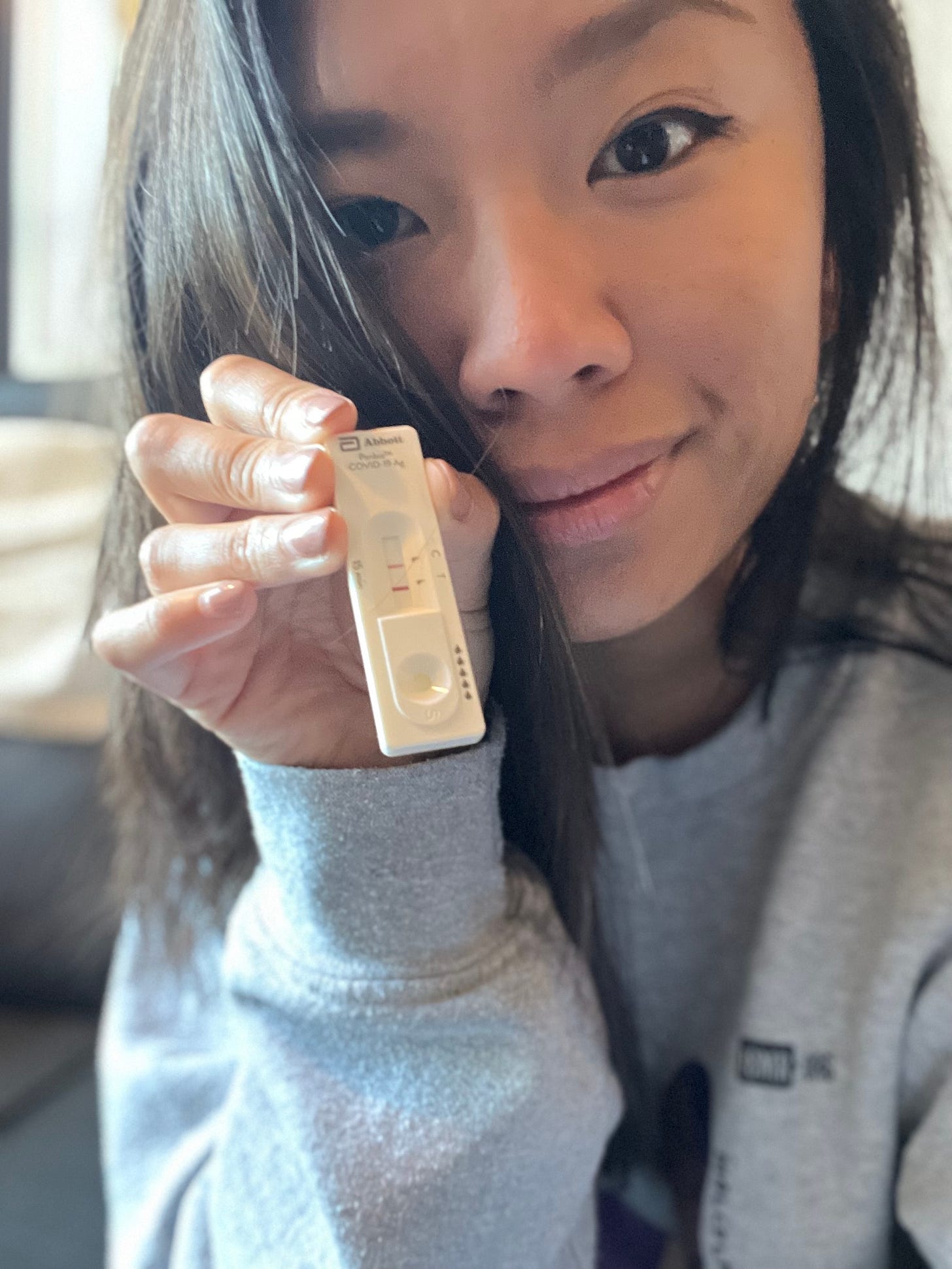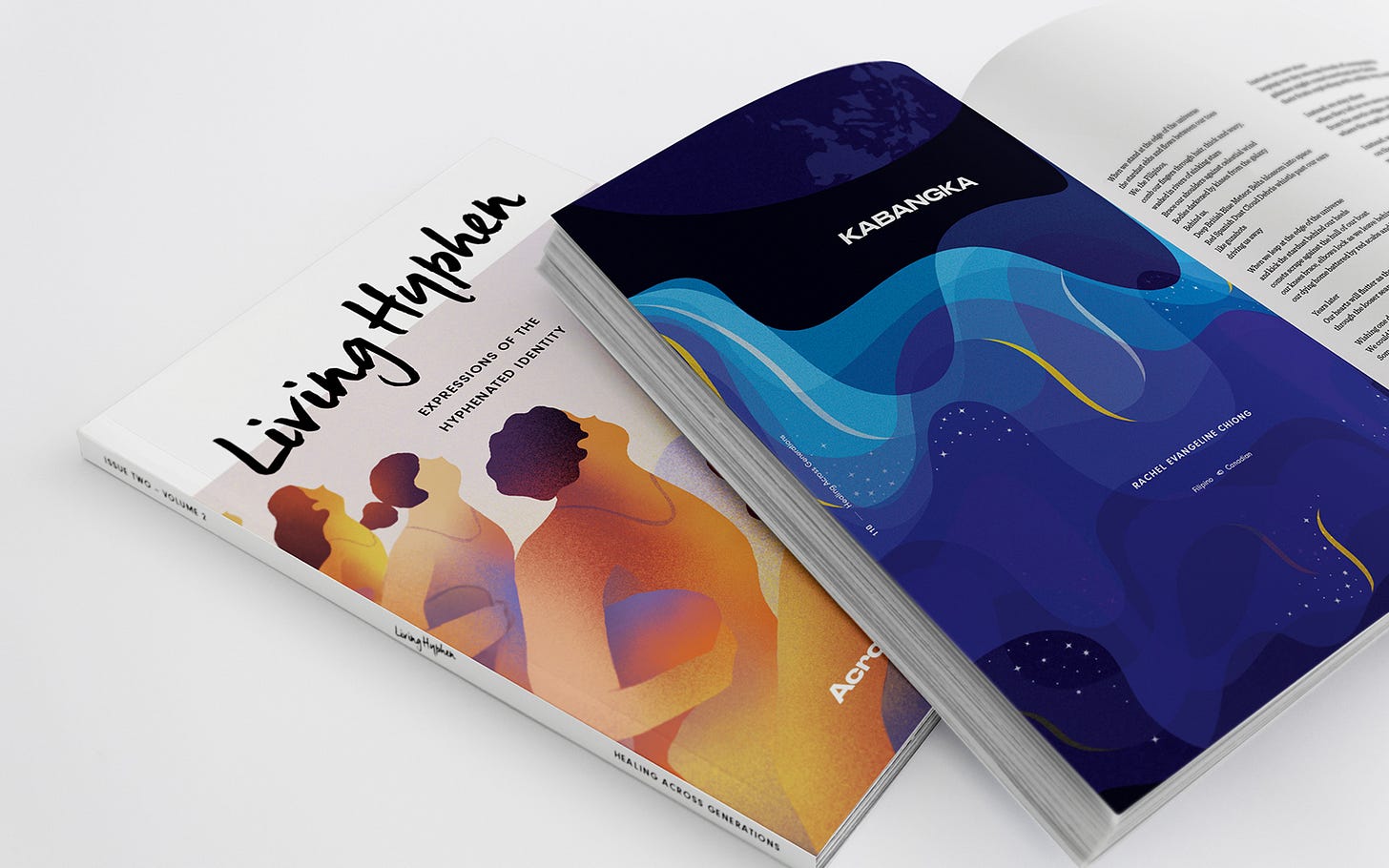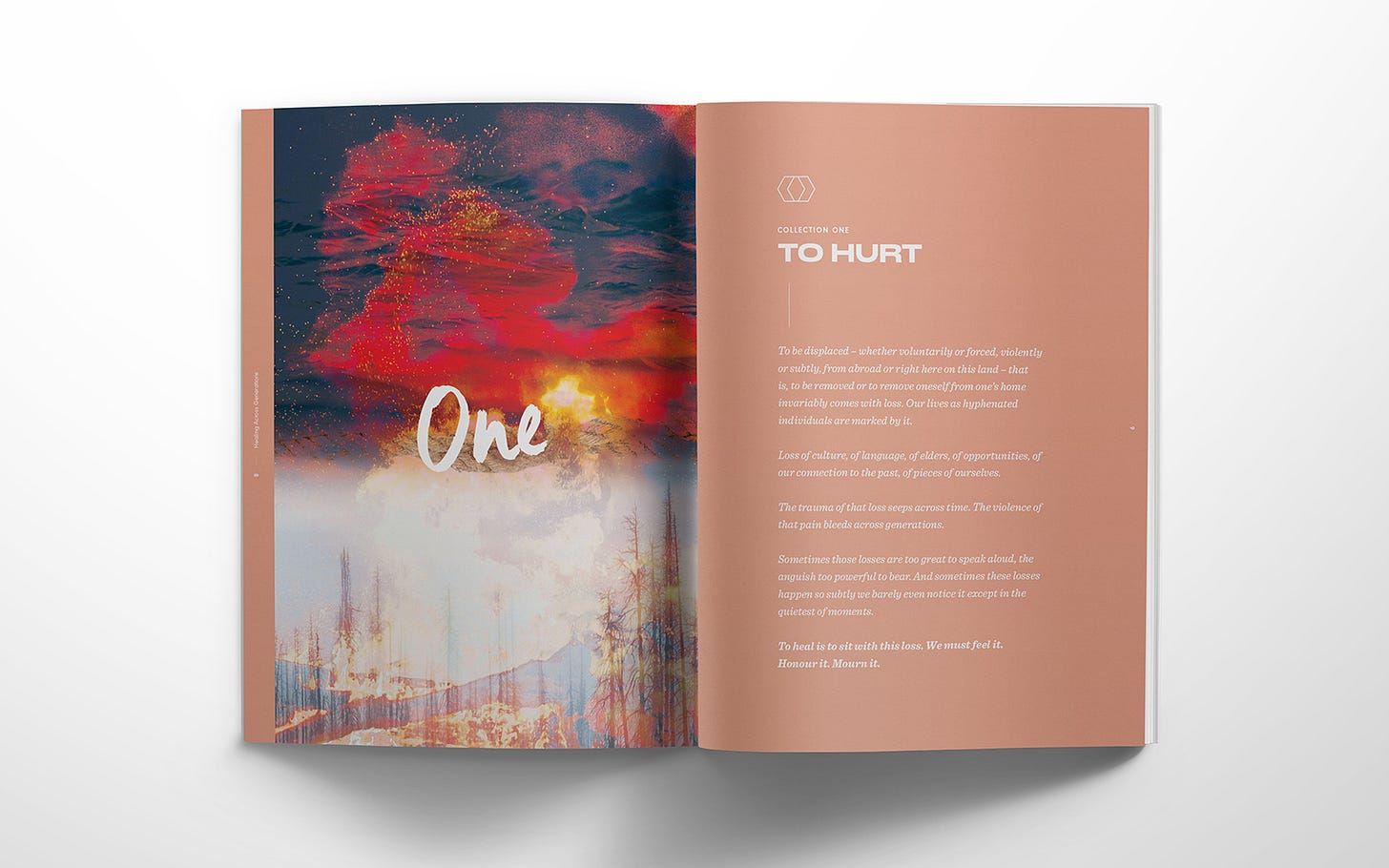Heal the World? Let's Just Start with Ourselves.
a.k.a thoughts from my COVID delirium. Or clarity. You decide.
Hi friends,
It’s been a while since I’ve last been in touch, but as I shared in my last newsletter back in July, I took much of the summer off to rest, recharge, and reset. While I wanted to get in touch with you sooner, our “post-pandemic” world would not let it be. You see, I’ve just recently recovered from COVID-19.
By some miracle, it was the first time my partner and I caught this infectious disease and by the miracle of vaccines, our symptoms were very mild. More than anything else, I just felt tired and completely depleted, spending my days mostly sleeping and resting.
Our isolation period and my lack of energy left me with plenty of time to think. I thought a lot about the absurdity of our trying to convince ourselves that we are living in a “post-pandemic” world. I thought about how surreal it is that 6.58 million people have died from this disease and how little thought our world pays those people. I thought about how many more continue to live with the long-standing effects of this disease, of which we know so very little about right now.
I thought about how, as always, this pandemic has and will continue to most deeply impact those who are already marginalized, including Indigenous peoples, Black and racialized communities, people with disabilities, women, 2SLGBTQ+ communities, and communities from the Global South. I thought about how much local and global inequities only continue to deepen, to compound, and to intensify.
I thought a lot about healing too — not just in the context of physical recovery but in the broader context of our world too. I thought about healing the wounds of inequity that our systems have wrought upon us. I thought about how, in the face of so much collective trauma, the need to heal has never been more critical.
Repair, Restore, and Rebuild.
This newsletter and my approach to equity and anti-oppression, in general, was largely built on the 3Ds – decolonize, disrupt, and dismantle. But what’s left in the wake of all that undoing?
As I continue to move deeper into equity work, I’m learning that it simply isn’t enough to try and undo the systems of oppression that have been built around us.
As Audre Lorde so powerfully wrote, “the master’s tools will never dismantle the master’s house.” We need new tools, new systems, new frameworks, new modes of being to be able to fully realize the change that we want. We must imagine and invent equitable futures for our world.
It’s only recently that I added the “R” to this approach: “rebuild”. And even then I’m realizing how simplified that is. We can’t simply go from decolonizing, disrupting, and dismantling these systems straight to rebuilding new ones. No. We must also take the time to repair and restore all that has been broken and lost in the devastating wake of oppression. We must, in a word, heal.
And that is no easy feat. There is no quick cure, no easy remedy, no instant gratification in this journey of healing.
And while there is a glamour to the idea of healing the world and mobilizing change on a grand scale, the truth is that we must start first with ourselves and with our most intimate relations. I always think about Kai Cheng Thom’s words:
“Personal relationships are the most important political building blocks: The revolution starts at home. If you don’t have healing relationships, you probably don’t have a revolutionary movement.”
This is the work that you will not be posting on social media, that no one will reward you for, that no one can do for you, but you.
Healing Across Generations
In an attempt to live out this approach in reality, I wanted to share something that I’ve been working on now for a very long time. As many of you know, I am the founder of Living Hyphen. We are a community that explores what it means to live in between cultures as “hyphenated Canadians” – that is, anyone who calls what we now know as “Canada” home but who may have roots elsewhere.
I’m humbled to share that the latest issue of the Living Hyphen magazine is dedicated to the theme of “Healing Across Generations”.
Thom asks, “What would it take to create a community, a society, a world in which it was safe to tell our stories? Where we could melt the ice of our trauma without flooding the land with our grief?”
To be displaced – whether voluntarily or forced, violently or subtly, from abroad or right here on this land – that is, to be removed or to remove oneself from one’s home invariably comes with loss and trauma. Our lives as hyphenated individuals are marked by it.
Loss of culture, of language, of elders, of opportunities, of our connection to the past, of pieces of ourselves.
The trauma of that loss seeps across time. The violence of that pain bleeds across generations.
This issue is an invitation to confront this pain, to touch the centre of our sorrow, and to begin healing these tender wounds.
As hyphenated individuals living between cultures, our inheritance from generations past may often be laden with loss, trauma, pain, and forgetting. We may not always be able to unravel history or undo past harm. But we must remember that we are living lineage with the power to change course.
The next chapters are still unwritten; the path forward still uncharted. We have the chance to resist and to heal. If and when we do so, we create choices, open up options, and forge opportunities for ourselves and for our descendants.
To heal is to open new neural pathways – that is, to open up new ways of thinking, doing, and being. It is to open up possibilities for the generations to come.
I invite you along for the ride.
In solidarity,
Justine
Additional resources on repairing, restoring, and rebuilding more equitable systems:
Admittedly, this is an area that I’m still learning a lot about myself, and I welcome any of your suggestions for books or essays to read, podcasts to listen to, or shows to watch. Here are the few gems that I’ve discovered thus far:
Kai Cheng Thom’s I Hope We Choose Love
Mariame Kaba’s We Do This 'Til We Free Us
adrienne maree brown’s Emergent Strategy: Shaping Change, Changing Worlds
Artwork from chiara francesca of @chiara.acu
What’s happening in my world:
I’ll be speaking at the Walrus Talks at Home: Funding Change on October 13 to discuss the enormous potential of youth grassroots funding to improve society and fuel civic engagement. Join us for free online as we explore what it means to decolonize funding, how public policy can support grassroots change, and how accessible funding can have a huge impact on future generations. Register here.
Living Hyphen’s writing workshops are back for the fall season! I’ll be facilitating in-person and virtual programs all through October and November. Take a look at our program offerings and please share widely!
We’re celebrating the launch of Living Hyphen’s latest issue with a night of storytelling on October 28. If you’re in Toronto, join us in person at Page One Cafe. RSVP here!
I’m currently reading This Bridge Called My Back: Writings by Radical Women of Color, and learning so much. Highly recommended!






